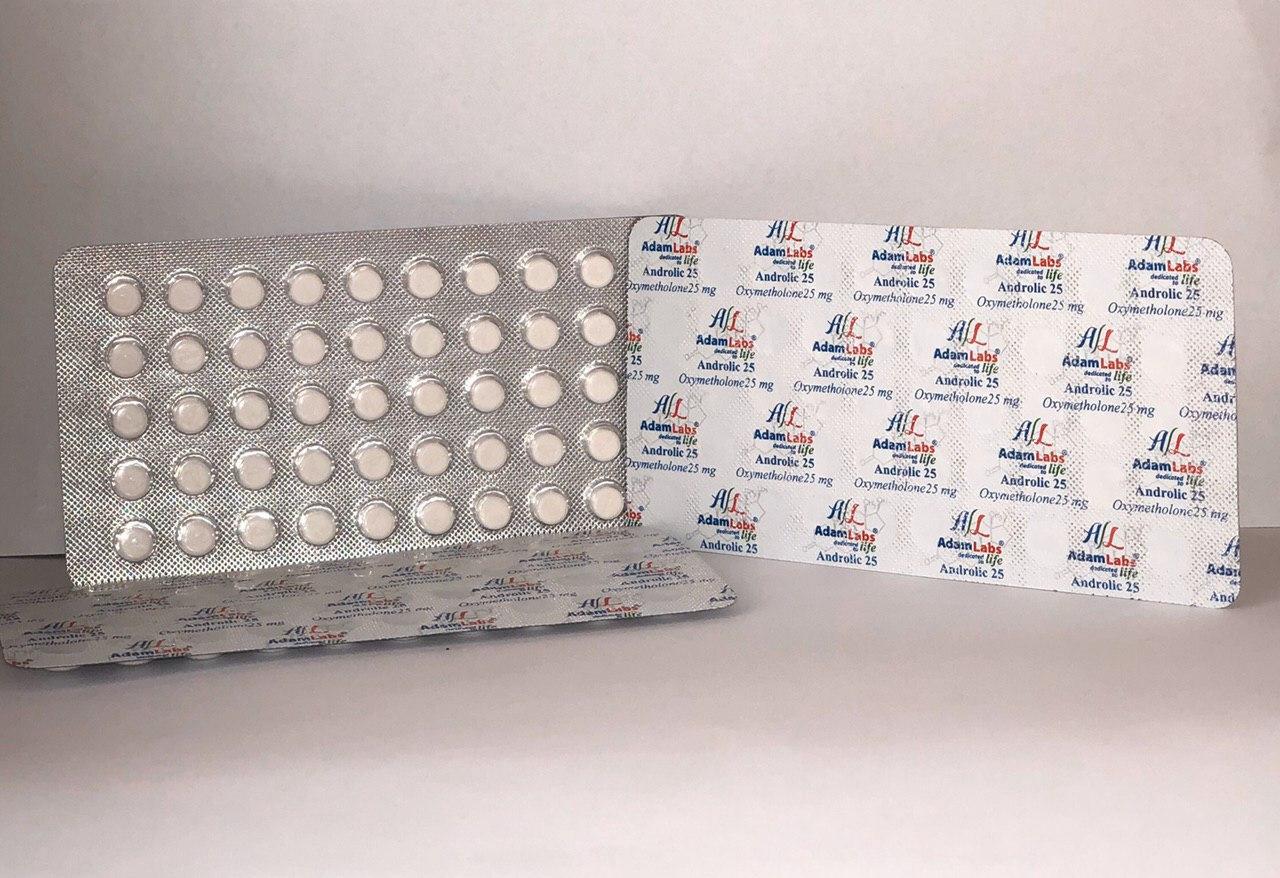
What is Oxymetholone?
Oxymetholone is a synthetic male hormone (similar to testosterone) that is used within anabolic steroids to treat low red blood cell counts (anemia).
By increasing the amount of erythropoietin produced and excreted within your body, this can boost red blood cell production, and improve the transportation of oxygen around your body. This is particularly helpful for those suffering from different types of anemia e.g. anemia caused by chemotherapy.
Oxymetholone dosage
Oxymetholone can be taken orally – yay no injections – and comes in Oxymetholone 25 mg tablets.
These should always be taken at the same time every day and should be consumed alongside food or milk to prevent an upset stomach.
Now, the amount you take – and for how long – is completely dependent on your medical condition, weight and what your doctor has prescribed based on your response to therapy.
They check this by regularly testing your blood, as it can take anywhere between 3-6 months before your symptoms start to improve. This is why regular blood tests are so necessary, as it allows your doctor to spot these changes early and modify your Oxymetholone dosage appropriately.
If however, you do see a change in your weight, it is important that you report it to your doctor immediately, as they will need to adjust your dosage (as it is based on your weight). For instance, the recommended daily dose for children and adults is 1-5mg/kg body weight per day. For most, this means a dosage of 1-2mg/kg/day, but depending on your condition it may be higher. How much you take is completely dependent on your individual needs.
In terms of the actual administration of your dosages, there are a few rules to remember:
1 You should never share your medicine with anyone else.
2 If you miss a dose, take it as soon as you remember – unless it is close to your next scheduled dose.
3 Never double your dosages or try to take extra to make up for a missed dose. This is dangerous.
Now, you may reach a point where your condition is under control and your doctor feels you can stop taking Oxymetholone. At this point, you can choose to take a small amount to help keep your red blood cells from dropping.
However, for a lot of users they are not so lucky and they have to take Oxymetholone for the rest of their lives.
Oxymetholone side effects
No matter your reasons for taking Oxymetholone, the side effects are still the same. So whilst it can produce gains fast; you need to remember that with these gains you are also exposing your body to a whole host of nasty and unpleasant side effects.
Take a look at these bad boys:
• Water retention
• Excess body hair or on the opposite end of the scale hair loss
• Severe acne
• Liver damage/liver disease – long term use can cause liver tumors or blood-filled cysts in your liver/spleen
• Heart disease (including heart attacks and strokes)
• Mental/mood changes e.g. mood swings
• Depression (this usually occurs when it is misused or abused)
• Irritability and fatigue
• Sleeping problems (insomnia)
• Swelling in your ankles or feet
• Nausea, vomiting, diarrhea and upper stomach pains
• Rapid weight gain (around your face and midsection)
• Loss of appetite
• Dark urine/painful urination
• Jaundice (yellowing of skin and eyes)
• Trouble breathing/shortness of breath
• Swelling of the face, lips, tongue or throat (rare, but it can happen)
• Loss of sex drive and libido. Strangely, it can also do the opposite leading to increased sexual desire and painful/ongoing erections
• Decreased semen (during ejaculation)
• Changes to testicle size e.g. shrinkage
• Bleed or bruise easily e.g. nose bleeds and bleeding gums (any bleeding that won’t stop)
• Impotence
• Breast tenderness and swelling (and we’re not just talking about women, this can happen to men too)
• Masculinization/virilization in women – chest or facial hair, male pattern baldness, enlarged clitoris and a deepening of the voice (voice hoarseness)
• Changes to menstrual cycle (periods could stop completely, affecting fertility)
